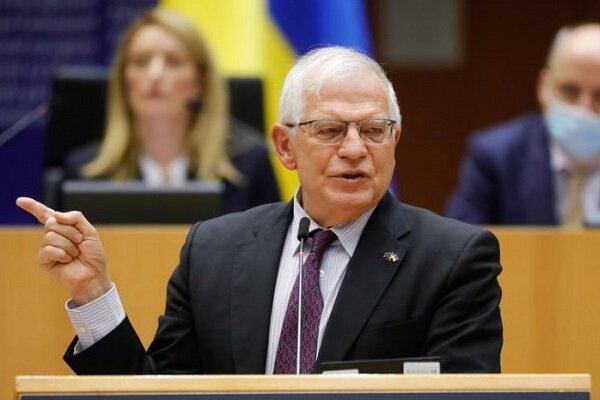Europe: We froze 300 million euros of Georgian assets

reported by Mehr News Agency quoted by Reuters, Joseph Burrell, the European Union foreign policy official, announced that due to the approval of the “Foreign Agents” law in the Georgian Parliament, the European Union has frozen 30 million of the country’s foreign assets.
He also added: Georgia’s accession to the European Union has been suspended.
A few hours ago, the Russian Foreign Intelligence Service (SVR) released a statement announcing that the White House had designed a plan and campaign that, on the eve of the October 26 elections, “Dream Party” » Discredit the ruling party in Georgia and introduce Russia as the cause of all Georgia’s problems.
As stated in this statement, Georgian President Salomem Zurabishvili will soon give an interview to the American media and will probably blame the government for “sabotaging” Georgia’s accession talks to the Union. Europe will blame and warn of “terrible consequences of proximity to Moscow”.
According to Russia’s Foreign Intelligence Service, American “planners and planners” have ordered forces opposed to the Georgian government to begin planning the start of nationwide protests in Georgia.
dir=”RTL” style=”text-align:justify”>
At the end of May, the president of Georgia announced by publishing a statement that he vetoed the bill on “foreign factors” that was approved by the parliament. He had previously threatened to veto this bill if approved by the parliament of his country.
On May 25, the Parliament of Georgia passed a controversial bill called “Foreign Factors”, according to which non-governmental organizations in this country that receive more than 20% of their budget from abroad must be registered as a foreign broker, approved.
The ruling party of Georgia, which holds the majority of the country’s parliament, had announced that this bill is necessary for the transparency of the activities of non-governmental organizations and to prevent “the influence of foreign factors”.
On the other hand, opponents and Western countries consider this bill similar to a law in Russia that has helped the government of this country to restrict the activities of many non-governmental organizations that receive part of their budget or all of it. to stop the supply from outside the borders of Russia.
The approval of this law took place after weeks of strong and widespread protests in Georgia, which were accompanied by clashes between protesters and the police, as well as the arrest of some.
Protests in which tens of thousands of people came to the streets and expressed their anger and dissatisfaction with this bill. This decision, which was taken by the ruling party of Georgia called “Georgian Dream” despite the opposition of the president, opponents and civil society, was a controversial bill and led to a deep gap between the involved parties. In recent weeks, the streets of Tbilisi witnessed massive and continuous demonstrations of protesters with the slogan “Yes to Europe, no to Russian law”.


